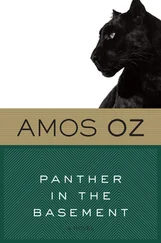Amos Oz - Where the Jackals Howl
Здесь есть возможность читать онлайн «Amos Oz - Where the Jackals Howl» весь текст электронной книги совершенно бесплатно (целиком полную версию без сокращений). В некоторых случаях можно слушать аудио, скачать через торрент в формате fb2 и присутствует краткое содержание. Год выпуска: 2012, Издательство: Houghton Mifflin Harcourt, Жанр: Современная проза, на английском языке. Описание произведения, (предисловие) а так же отзывы посетителей доступны на портале библиотеки ЛибКат.
- Название:Where the Jackals Howl
- Автор:
- Издательство:Houghton Mifflin Harcourt
- Жанр:
- Год:2012
- ISBN:нет данных
- Рейтинг книги:4 / 5. Голосов: 1
-
Избранное:Добавить в избранное
- Отзывы:
-
Ваша оценка:
- 80
- 1
- 2
- 3
- 4
- 5
Where the Jackals Howl: краткое содержание, описание и аннотация
Предлагаем к чтению аннотацию, описание, краткое содержание или предисловие (зависит от того, что написал сам автор книги «Where the Jackals Howl»). Если вы не нашли необходимую информацию о книге — напишите в комментариях, мы постараемся отыскать её.
Where the Jackals Howl — читать онлайн бесплатно полную книгу (весь текст) целиком
Ниже представлен текст книги, разбитый по страницам. Система сохранения места последней прочитанной страницы, позволяет с удобством читать онлайн бесплатно книгу «Where the Jackals Howl», без необходимости каждый раз заново искать на чём Вы остановились. Поставьте закладку, и сможете в любой момент перейти на страницу, на которой закончили чтение.
Интервал:
Закладка:
By the hand of his adjutant Azur the nomad chieftain sent back word to Gatel king of Ammon saying:
“Gatel, I am not your brother or your father’s son. You know that I am a stranger. I do not fight for the Israelites, I fight for one you do not know. In his honor I shall put you to the sword and your enemies, too, for I have been a stranger all the days of my life.”
7
PITDAH DREAMED a dream one night in her tent in the Land of Tob. In her dream she was a bride in a bridal gown. The maidens were dancing around her with lyres and timbrels, and there were bracelets on her arms.
When she told her father about this dream he flew into a panic. He shook her by the shoulders and whispered frantically: Tell me who was your bridegroom. As he pleaded with her his hands twisted her shoulders violently, and she suddenly started to laugh, as she often laughed, without cause. Then he slapped her face wildly with the back of his hand and shouted: Who was your bridegroom.
Pitdah said:
“You are looking at me like a murderer.”
“Who was it, tell me who it was.”
“I couldn’t see his face in the dream, I could only feel his hot breath on me. Look at you, you’ve got foam on your lips, leave me alone, go and wash your face in the brook.”
“Who was it.”
“Don’t you hit me again or I’ll laugh aloud and the whole camp will hear.”
“Who was it.”
“But you know who my bridegroom is. Why did you shout at me, why are you trembling so.”
She stood laughing and he stood facing her wearing a dazed look. His eyes were closed and his lips said to him: Of course I knew, why was I so startled. They were still standing there when the elders of Israel rode down to prostrate themselves at Jephthah’s feet.
He opened his eyes and saw them coming, and he also saw his father Gilead riding with them. He was just as broad and heavy and ugly as in the old days, only his beard had turned gray.
The elders of Israel raised the hems of their cloaks because of the dust of the desert. They fell flat on their faces before the chief of the nomads. Gilead alone did not bow or prostrate himself before his son. Then a delicious bubbling joy began to course through Jephthah’s veins, such a joy as he had never known before and would never know again.
With an effort he controlled his voice as he addressed the elders:
“Arise, elders of Israel. The man to whom you are bowing down is a harlot’s son.”
But they remained on their knees and would not stand up; they merely looked at one another, not knowing what. At the end of the silence Gilead the Gileadite said:
“You are my son, who will save Israel from the Ammonites.”
Jephthah contemplated their broken pride distantly as though it were a wound. Then he was touched by sorrow, not the sorrow of the elders, perhaps not sorrow at all, but something that was not far removed from gentleness, a taste of scorched earth. Gently he said to them:
“I am a stranger, O elders of Israel. No stranger should go before you in your wars, lest the camp be unclean.”
At this the elders rose. They said:
“You are our brother, Jephthah, you are our brother. See, today we have made your father Gilead judge of Israel and you, our brother, shall be the captain of our army, you shall fight for us against the Ammonite; as captain of your father’s army you shall be our commander, you shall have power over all your brothers, Jephthah, because from your earliest youth you have known the skills of war. To this day the story is told around the shepherds’ campfires how you tore a wolf with your bare hands.”
“But surely you hate me, elders, and when I have crushed the Ammonite for you you will chase after me like a rebellious slave and my father here will put me in irons because he is the judge of Israel and I am a stranger, a nomad and a harlot’s son.”
“You are my son, Jephthah. You are my boy who put his hand into the fire without crying out and who tore a wolf with his bare hands. If you come back and fight the Ammonites for us I shall bless you before all your brothers, and you shall be the one who leads the people out and brings them in all the days of my life.”
“Why do you not leave me alone, elders. And you, too, judge of Israel: stop pleading with me. You are not children: why are you playing these games. Go while you can and save your hoarheads, and take your priests and all your scribes with you. Only leave me alone. I can see through your plot. Jephthah will not be the warhorse of Israel, and this old man will not ride on my back.”
Then Gilead the Gileadite spoke, with lips pressed tight together as though he were straining to break an iron chain.
“Your father will not judge Israel. You shall fight and you shall judge.”
The elders were silent; their tongues failed them at the sound of these words.
Jephthah spoke quietly, like a fox, and as he spoke the yellow spark glimmered in his eye.
“If you are really and truly appointing me to be judge of Israel this day, then swear to me now in the name of our God.”
“As God hears and witnesses: you shall be judge.”
“A whore’s son shall be your leader,” Jephthah said, and he laughed so loudly that the horses were alarmed.
And the elders soundlessly repeated:
“Our leader.”
“Then clap this old man in irons at once. The judge of Israel commands you.”
“Jephthah, my son—”
“And cast him into the pit. I have spoken.”
The following day Jephthah inspected his army and appointed captains and commanders. He dispatched his brothers Jamin and Jemuel to assemble speedily all the fighting men among the tribes of Israel. And he sent his adjutant Azur the Gileadite with a message to Gatel king of Ammon:
“Get out of my land.”
At nightfall on the following day, the judge of Israel commanded a large tent of honor to be pitched in the middle of the camp, and he ordered his father Gilead to be brought up from the pit and installed in this tent and furnished with wine and servant girls. To his daughter Pitdah he said: If the old man dashes the wine pitcher to the ground and smashes it, tell the servants to hurry and bring him a fresh one quickly. If he breaks the second let them fetch him another, because this old man sometimes takes a fancy to the sound of breaking glass. Let him smash to his heart’s content. Only do not dare to enter the tent yourself; stop laughing now. Go.”
Gatel king of Ammon was driven to distraction by the Jephthahites who picked off his soldiers by day, and by night seemed to be swallowed up by the earth. He sent his army after them, but it was like chasing the wind. He became a laughing stock in Moab and in Edom a byword: the fly bites and the bear dances.
Gatel sent Jephthah a message by the hand of Azur his adjutant: Leave me alone, Jephthah. You are an Ammonite; why should you harm me; surely I loved you deeply. But Jephthah knew Gatel’s mind, he knew that he had set his heart on being like one of the mighty kings of old but that even the smell of horses in the distance was enough to make him feel giddy. Calmly the judge of Israel waged a war of words with the king of Ammon by means of envoys who passed to and fro: to whom did the land really belong, whose forefathers had settled it first, what was written in all the chronicles, who was in the right and who had justice on his side. Eventually Gatel came to imagine that it was a war of scrolls that he had to wage, and he multiplied scroll upon scroll.
The elders of Israel came to the judge’s tent saying: In God’s name, go, the time is passing, the Ammonite is devouring all the land, if you delay longer what will there be left to save for us. Jephthah listened and said nothing. The elders spoke further to the judge: Send word to the Edomite and to the Arab, send to Egypt and to Damascus, we cannot manage alone, for Ammon is too strong for us. And still Jephthah said nothing.
Читать дальшеИнтервал:
Закладка:
Похожие книги на «Where the Jackals Howl»
Представляем Вашему вниманию похожие книги на «Where the Jackals Howl» списком для выбора. Мы отобрали схожую по названию и смыслу литературу в надежде предоставить читателям больше вариантов отыскать новые, интересные, ещё непрочитанные произведения.
Обсуждение, отзывы о книге «Where the Jackals Howl» и просто собственные мнения читателей. Оставьте ваши комментарии, напишите, что Вы думаете о произведении, его смысле или главных героях. Укажите что конкретно понравилось, а что нет, и почему Вы так считаете.












